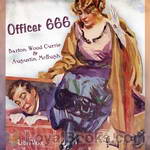|
Books Should Be Free Loyal Books Free Public Domain Audiobooks & eBook Downloads |
|
|
Books Should Be Free Loyal Books Free Public Domain Audiobooks & eBook Downloads |
|
Top Authors |
|---|
|
Book type:
Sort by:
|
By: Barbara Hofland (1770-1844) | |
|---|---|
 The Young Crusoe, or The Shipwrecked Boy
The Young Crusoe, or The Shipwrecked Boy
The Young Crusoe, or The Shipwrecked Boy (1829) Novel. At the novel's opening, Charles Crusoe, thirteen years of age, asks his mother if he is related to the famous Robinson Crusoe, and is told that he is not. His future adventures, however, strongly resemble those of the earlier Crusoe. | |
 The Barbadoes Girl
The Barbadoes Girl
Matilda Sophia Hanson, whose father has recently died in their country of Barbadoes in the West Indies, must live for a time with family friends in England. The Harewood family is astonished at how spoiled, rude, and uneducated the child is. However, with seemingly endless patience and love, they help Matilda work to conquer her bad temper, and become a sensible, good, and well-informed young lady. This story reminds children and adults alike, though you have many battles with yourself, you must never relinquish hope and be assured you will find every victory easier than the last... | |
By: Baron Ludvig Holberg (1684-1754) | |
|---|---|
 Niels Klim's Journey Under the Ground
Niels Klim's Journey Under the Ground
Niels Klim’s Underground Travels, originally published in Latin as “Nicolai Klimii Iter Subterraneum” (1741) is a satirical science-fiction/fantasy novel written by Ludvig Holberg, a Norwegian-Danish dramatist, historian, and essayist, born in Bergen, Norway. It was his first and only novel. It describes a utopian society from an outsider’s point of view, and often pokes fun at diverse cultural and social topics such as moral, science, sexual equality, religion, governments, and philosophy. | |
By: Baron Paul Henri Thiry d'Holbach (1723-1789) | |
|---|---|
 Good Sense
Good Sense
In 1770, Baron D'Holbach published his masterpiece, "Systeme de la Nature", which for a long time passed as the posthumous work of M. de Mirabaud. That text-book of "Atheistical Philosophy" caused a great sensation, and two years later, 1772, the Baron published this excellent abridgment of it, freed from arbitrary ideas; and by its clearness of expression, facility, and precision of style, rendered it most suitable for the average student. This text is based on an undated English translation of "Le Bon Sens" published c. 1900. The name of the translator was not stated. | |
By: Baroness Emma Orczy (1865-1947) | |
|---|---|
 Leatherface: A Tale of Old Flanders
Leatherface: A Tale of Old Flanders
A romantic, political adventure story set in the late 1500's, during the Spanish rule over the Netherlands, in the city of Ghent. Leatherface is an Orangist and emerges to lead the Ghent citizens to rebel and win back their freedom. | |
 Unravelled Knots
Unravelled Knots
Unravelled Knots is the third and final installment of the Old Man in the Corner stories by Baroness Orczy. After a break of several years, Polly returns to the ABC Tea Shop to find the Old Man at his usual table with his glass of milk and bit of string. With a just a little encouragement, he is ready to share more unique solutions to the unsolved mysteries that have baffled both the public and the police. Summary by J. M. Smallheer | |
 Pimpernel and Rosemary
Pimpernel and Rosemary
A novel in the Scarlet Pimpernel series that features Peter Blakeney, a descendant of the Scarlet Pimpernel. Peter's adventures take him to Hungary and much intrigue involving his good friend, Rosemary, Nazis, and spies ensue. - Summary by Holly Rushik | |
 Beau Brocade
Beau Brocade
Beau Brocade is a historical fiction set in England in the early 1700's. The hero Beau is a wanted highwayman, who takes from the rich to help the poor. - Summary by Deon Gines | |
 Case of Miss Elliott
Case of Miss Elliott
A sequel to the stories published in The Old Man in the Corner, this second book in the series includes twelve new mysterious cases that The Old Man in the Corner unravels over his milk and cheesecake at the ABC Tea Shop, all the while tying and untying knots in a bit of string. His audience is Polly Burton, a young journalist, who has to begrudging admit that the Old Man's solutions are indeed plausible explanations to these cases which have baffled both the police and coroner. Orzy's Old Man is an early 20th century example of the armchair detective. Summary by J. M. Smallheer | |
By: Baroness Emmuska Orczy (1865-1947) | |
|---|---|
 El Dorado
El Dorado
If you've read and loved the exciting classic The Scarlet Pimpernel then you'd probably be delighted to follow the further adventures of the dashing Sir Percy Blakeney. El Dorado by Baronness “Emmuska” Orczy depicts the intrepid swordsman and escape artist in the role of savior of the French royal family. Published in 1913, El Dorado was the fourth in the Pimpernel series of eleven books, numerous short stories and other related writings about her famous British adventurer. However, Orczy did not always follow a strict chronological sequence while publishing the novels and hence, there is plenty of overlap between the time frames of the stories... | |
 The Elusive Pimpernel
The Elusive Pimpernel
First Published in 1908, The Elusive Pimpernel by Baroness Orczy is the 4th book in the classic adventure series about the Scarlet Pimpernel. | |
 Castles in the Air
Castles in the Air
Baroness Emma Orczy (full name: Emma (”Emmuska”) Magdolna Rozália Mária Jozefa Borbála Orczy de Orczi) (September 23, 1865 – November 12, 1947) was a British novelist, playwright and artist of Hungarian noble origin. She was most notable for her series of novels featuring the Scarlet Pimpernel. Castles in the Air, a short novel or perhaps more like a collection of short stories with memories of a French rogue in the early 19th century Paris, was published in 1921 and about it I quote from the foreword: In very truth my good friend Ratichon is an unblushing liar, thief, a forger–anything you will; his vanity is past belief, his scruples are non-existent... | |
 The Emperor's Candlesticks
The Emperor's Candlesticks
When a group of Russian anarchists kidnap a Russian prince in Vienna there are repercussions. On learning that the Cardinal d'Orsay has agreed to convey some hollow candlesticks from the Emperor to the Princess Marionoff in St Petersburg, two spies both see the possibility of using them to convey messages safely into Russia. One is an eager young idealist involved in the plot against the prince, the other is Madame Demidoff, a beautiful agent of the Tsar. When the candlesticks go missing at the border, the two engage in a race to get them back, both realizing that their very lives could depend on the retrieval. | |
By: Baroness Orczy (1865-1947) | |
|---|---|
 The Old Man in the Corner
The Old Man in the Corner
Created by Baroness Orczy, author of the famous Scarlet Pimpernel series, The Old Man in the Corner was one of the earliest armchair detectives, popping up with so many others in the wake of the huge popularity of the Sherlock Holmes stories. The Old Man relies mostly upon sensationalistic “penny dreadful” newspaper accounts, with the occasional courtroom visit for extra laughs. He narrates all this information (while tying complicated knots in a piece of string) to a Lady Journalist who frequents the same tea-shop. | |
 Lady Molly of Scotland Yard
Lady Molly of Scotland Yard
Lady Molly of Scotland Yard is a collection of short stories about Molly Robertson-Kirk, an early fictional female detective. It was written by Baroness Orczy, who is best known as the creator of The Scarlet Pimpernel, but who also invented two immortal turn-of-the-century detectives in The Old Man in the Corner and Lady Molly of Scotland Yard. First published in 1910, Orczy’s female detective was the precursor of the lay sleuth who relies on brains rather than brawn. The book soon became very popular, with three editions appearing in the first year... | |
 I Will Repay
I Will Repay
This is a sequel novel to the Scarlet Pimpernel. The second Pimpernel book written by Orczy, it comes (chronologically) third in the series and should be read after Sir Percy Leads the Band and before The Elusive Pimpernel. | |
 Lord Tony's Wife
Lord Tony's Wife
Another adventure of the Scarlet pimpernel! As the title suggests, it follows the story of Lord Tony and his wife, Yvonne. It is full of suspense adventure and romance. Lord Tony and Yvonne elope after some disturbing happenings including an angry mob and an assault on Yvonne by her own father. Later a man set on revenge and with the help of Chauvelin steal Yvonne away, and Lord Tony must go to the Scarlet Pimpernel for assistance. Will they be able to save her and her father from the clutches of Pierre Adet and Chauvelin? Will Lord Tony ever even see his wife again? | |
 Laughing Cavalier; Ancestor of the Scarlet Pimpernel
Laughing Cavalier; Ancestor of the Scarlet Pimpernel
The enigmatic smile of The Laughing Cavalier of Franz Hals' famous painting invites you to wonder just what mischievousness hides behind that face. In this novel, inspired by the painting, Baroness Orczy recounts the adventures of an ancestor of her famous character, the Scarlet Pimpernel. Set in Holland during the turbulent times of 1623/1624, this is the story of a swashbuckling romanticist, whose desire for wealth and success always seems to be eclipsed by his sense of what is right and gentlemanly... | |
 Scarlet Pimpernel (Version 2)
Scarlet Pimpernel (Version 2)
In the year 1792, the French Revolution is in the midst of its bloodiest stage. Aristocrats are being executed left and right by the Republic when the guillotine begins to be repeatedly cheated of aristocratic victims due to a series of daring rescues carried out by a mysterious hero known only as “The Scarlet Pimpernel.” Nothing is known about this person, save that he is a master of disguise, has saved dozens of lives, and has never been caught. He is the hero of the aristocrats, the bane of the Republic, and the talk of high society across the channel in England... | |
 Triumph of the Scarlet Pimpernel (Dramatic Reading)
Triumph of the Scarlet Pimpernel (Dramatic Reading)
The last of the famous "Scarlet Pimpernel" books, the "Triumph" tells the story of the final confrontation between the Scarlet Pimpernel and his nemesis, Chauvelin. Set at the end of the Reign of Terror, the fortunes of all rise and fall along with the French Revolutionary government. | |
By: Barry Pain (1864-1928) | |
|---|---|
 Eliza
Eliza
A gentle, yet deliciously humourous series of anecdotes following the life of the main character and his wife, Eliza. | |
 If Winter Don't
If Winter Don't
Barry Pain's parody takes a sharp knife to ASM Hutchinson's best selling novel 'If Winter Comes'.We follow the professional and marital decline of long suffering (and loving it), Luke Sharper, as his marriage to Mabel flounders while his love for Jona flourishes. It could only end in tears.....Or could it? ( | |
 Marge Askinforit
Marge Askinforit
A rollicking parody of the Margot Asquith memoirs, in which Pain’s character, Marge, beguiles us with the most personal details of her dysfunctional family, and delights in relating every cringing, if not wholly accurate, minutiae of her exciting private life. | |
 Stories in the Dark
Stories in the Dark
This is a collection of some of Barry Pain's finest horror stories and weird fiction. - Summary by Carolin | |
 Problem Club
Problem Club
The Problem Club is an infamous London Club which meets once a month to discuss a given problem. The problems have nothing to do with mathematics, but are social problems, in the broadest possible sense of the word. For instance, how does one manage to kiss ten young ladies on the cheek within the space of one hour without offending any of them? Would you be able to solve this problem? Watch the members of the Problem Club compete and find out how it is done. - Summary by Carolin | |
 Stories without Tears
Stories without Tears
This is a collection of short stories by Barry Pain, first published in 1914. While generally best-known for his horror and supernatural fiction, Barry Pain turns to general fiction, mystery, and humour in this volume. Sorely needed in 1914, one might say, and perhaps also sorely needed today. - Summary by Carolin | |
 Octave of Claudius
Octave of Claudius
One night, Dr. Gabriel Lamb saves the life of Claudius Sandell. He takes him home and treats him excellently, nursing him back to health. However, Dr. Lamb's motives were really not quite altruistic, and Claudius may have to pay an extraordinary price for this kindness at the hands of the strange doctor and his equally strange wife. - Summary by Carolin | |
 Stories in Grey
Stories in Grey
This is a collection of short stories by Barry Pain. Pain was well-known in his time for his supernatural and horror stories. This collection contains 15 interesting examples of his work. - Summary by Carolin | |
 Three Dialogues
Three Dialogues
Barry Pain is today best known for his ghost and horror stories, but he could also write some excellent social satire. This series of three dialogues follows a life cycle: the subject of the first little play is the birth of a girl, in the second dialogue, two people discuss the marriage of mutual friends, and a death of a distant relative stands in the center of the third dialogue. - Summary by Carolin | |
 Exchange of Souls
Exchange of Souls
Although only lightly known as an author of horror stories, Barry Pain departs from his typical themes with 'An Exchange of Souls'. In this novel, respected doctor Daniel Myas is a scientist who has developed a machine which allows for the exchange of his 'personality' with that of another. However when his attempt at 'exchanging souls' occurs with an individual very close to him, only a form of horror can be the result, and the reader is led down a path of deterioration and fear. Undoubtedly this novel, published in 1911, influenced H... | |
By: Bartolomé de las Casas (1484-1566) | |
|---|---|
 Brief Account of the Destruction of the Indies
Brief Account of the Destruction of the Indies
A Short Account of the Destruction of the Indies (Spanish: Brevísima relación de la destrucción de las Indias) is an account written by the Spanish Dominican friar Bartolomé de las Casas in 1542 (published in 1552) about the mistreatment of the indigenous peoples of the Americas in colonial times and sent to then Prince Philip II of Spain. One of the stated purposes for writing the account is his fear of Spain coming under divine punishment and his concern for the souls of the Native Peoples... | |
By: Barton Wood Currie | |
|---|---|
 Officer 666
Officer 666
Bored with his life as a wealthy businessman's only son, Travers Gladwin learns of a plot by a renowned art burglar to rob his house, so rather than thwart the planned burglary, he borrows a police uniform from a friend and decides to confront the robber by posing as an officer. When the burglar arrives at the house, he tries to pass himself off as Travers Gladwin. From there, things only get more complicated, including the arrival of the burglar's girlfriend who believes that her beau is the wealthy man's son. Comical and timely, the book was made into a movie multiple times, each hugely successful. | |